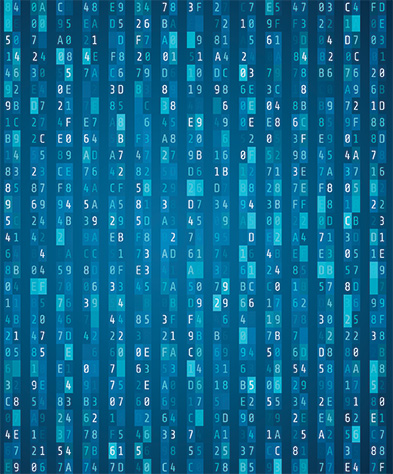Main Content
Master of Science in Cybersecurity and Cyber Systems

A Master of Science (M.S.) degree in Cybersecurity and Cyber Systems is designed to prepare you to meet the growing need for leaders who safeguard systems, protect data, and prevent damaging losses in the public and private sectors, or to further your research with advanced doctoral study.
Our faculty projects receive regular funding from state and federal resources like the National Science Foundation (NSF), National Institutes of Health, Department of Defense, Department of Energy, and from industry front-runners like AMD, Ford, GM, and Intel, so the opportunity and flexibility to participate in groundbreaking research and to collaborate with faculty and peers is built into your course of study.

Requirements and Curriculum
An M.S. in Cybersecurity and Cyber Systems requires 30 credit hours, and is designed for students with bachelor’s degree in Computer Science, Engineering, Physics, Mathematics, Information Systems, or equivalent. For applicants lacking the required specific background, we offer conditional admission status until completing prerequisite courses.
As a candidate for a Master of Science (M.S.) degree in Cybersecurity and Cyber Systems degree you will successfully complete a foundation of coursework to show mastery of three core competencies before selecting a concentration in either Cybersecurity or Cyber Systems.
Core competencies include Fundamentals in Computer Security, which covers Computer Security and Computer Systems Security, Fundamentals in Systems Programming, which covers Advanced Linux/UNIX Programming and Embedded Systems Programming, and Fundamentals in Network Systems which covers Embedded Systems Programming and Computer Network System Architecture.
Concentrations
In the cybersecurity concentration, students must complete 4 courses in the area of cybersecurity and 1 course in cyber systems. In the cyber systems concentration, the students must complete 4 courses in cyber systems and 1 course in cybersecurity. Topics in Cybersecurity include Cryptography, Ethical Hacking, Digital Forensics, Network Forensics, Network Security, Hardware Security, Edge Computing, Advanced Hardware Security and Trust,
Advanced Computer Security, Security Issues in Cloud Computing, and Security in Cyber-Physical Systems. Topics in Cyber Systems include Systems Modeling and Verification, Computer Systems, Reliability Principles of Virtualization and Cloud Computing, Mobile and Wireless Computing, Digital Health Cyber Systems, Wireless Networks, ASIC Design for cybersecurity applications, Embedded Systems in cybersecurity, Advanced Computer Networks or Quantum Information Processing and Devices.
Lab & Research Facilities
The interdisciplinary program between the School of Electrical, Computer, and Biomedical Engineering and the School of Computing includes access to resources like high-performance computing (HPC) through our Supercomputer and Advanced Control Laboratory, with infrastructure consisting of 106 dual quad core Dell PowerEdge compute nodes running Red Hat Enterprise Linux.
Instruction takes place on state-of-the-art equipment including oscilloscopes, digital multimeters, power supplies, function generators, logic analyzers and computer workstations loaded with software from Microsoft Office, Matlab, Visual Studio, Visual C++, Xilinix/Vivado, National Instruments LabView, PSpice, Orcad, Digilent Adept, DipTrace, Femm, CST Studio, PowerWorld Simulator, Cadence, Synopsis, and others.
You’ll also have access to supporting facilities like SIU’s Morris Library: we’re ranked among the top 100 research libraries in the United States.
Career Opportunities
The US Bureau of Labor Statistics projects the demand for information security professionals is projected to grow 33 percent by 2030. A Master of Science (M.S.) degree in Cybersecurity and Cyber Systems offers all the opportunities for mentorship and networking offered at a nationally ranked research university.
Funding
Many qualified graduate students in Computer Science receive financial support in the form of teaching or research assistantships. The number of appointments are limited and normally made on a half-time basis, committing the student to 20 hours of work per week. Assistantships generally come with a monthly stipend and a waiver for tuition and fees. Students who hold an assistantship normally take 9 credit hours per semester.
If any of the two schools that support the program cannot provide an assistantship you may check the SIU Graduate School's web page on Graduate Administrative Assistantship Job Postings for possible employment, which should include tuition waivers.
In addition to assistantships, a limited number of graduate fellowships are available to academically superior students and provide a monthly stipend and a tuition waiver. No duties are required of graduate students holding fellowships.
Contact Information
Brittany Hopkins
Graduate Program Assistant
Engineering A319
1230 Lincoln Drive
Carbondale, IL 62901
618-453-6042
gradinfo@cs.siu.edu




